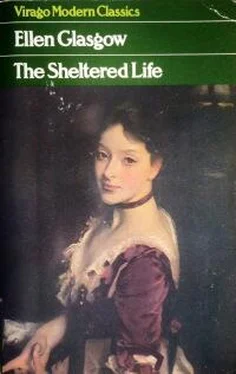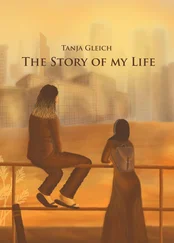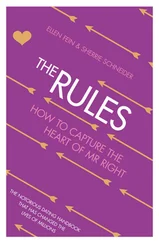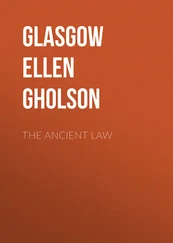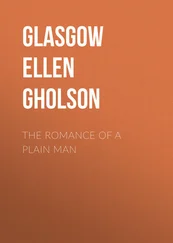Ellen Glasgow - The Sheltered Life
Здесь есть возможность читать онлайн «Ellen Glasgow - The Sheltered Life» весь текст электронной книги совершенно бесплатно (целиком полную версию без сокращений). В некоторых случаях можно слушать аудио, скачать через торрент в формате fb2 и присутствует краткое содержание. Жанр: Классическая проза, на английском языке. Описание произведения, (предисловие) а так же отзывы посетителей доступны на портале библиотеки ЛибКат.
- Название:The Sheltered Life
- Автор:
- Жанр:
- Год:неизвестен
- ISBN:нет данных
- Рейтинг книги:5 / 5. Голосов: 1
-
Избранное:Добавить в избранное
- Отзывы:
-
Ваша оценка:
- 100
- 1
- 2
- 3
- 4
- 5
The Sheltered Life: краткое содержание, описание и аннотация
Предлагаем к чтению аннотацию, описание, краткое содержание или предисловие (зависит от того, что написал сам автор книги «The Sheltered Life»). Если вы не нашли необходимую информацию о книге — напишите в комментариях, мы постараемся отыскать её.
The Sheltered Life — читать онлайн бесплатно полную книгу (весь текст) целиком
Ниже представлен текст книги, разбитый по страницам. Система сохранения места последней прочитанной страницы, позволяет с удобством читать онлайн бесплатно книгу «The Sheltered Life», без необходимости каждый раз заново искать на чём Вы остановились. Поставьте закладку, и сможете в любой момент перейти на страницу, на которой закончили чтение.
Интервал:
Закладка:
"Yes, you're too young," she began presently, after a pause. "You're too young to know what it means." Then, while her voice was still despairing, her lips smiled, and that swift smile diffused warmth, charm, a subtle magic of personality. "Whatever you do, Jenny Blair, never risk all your happiness on a single chance. Always keep something back, if it is only a crumb. Always keep something back for a rainy day." Still smiling, she held out her arms. "Now, you'd better run away, darling, and I'll ring for Berry and have my bath. You will come back early to-morrow?"
"Yes, I'll come early to-morrow. I'll come whenever you want me."
"In the morning, then. Come in the morning and read to me before I dress. I missed people so in the country. You know I always like people about me."
"Well, you've plenty of friends."
"Yes, I've plenty of friends still. But people don't like to be depressed. You must not let me depress you. Have all the joy you can while you are young." As Jenny Blair looked back from the door, Mrs. Birdsong sat up on the couch and threw a kiss after her. "You've been the greatest comfort to me, dear," she called cheerfully. "Come early to-morrow."
The staircase was dim, but the front door was open, and the sallow flush of the afterglow streamed into the hall. "I must not see him alone. It is all over," the girl said to herself. "I shall never, no, never think of him again." Driven by the thought, she ran down the walk and out of the gate before she saw that John was stopping his car by the pavement.
"Wait a minute, Jenny Blair. I want to speak to you," he called in a tone that sounded resentful. "I tried to see you last night," he added, as he reached her and held out his hand. "Did you really have a headache? Nobody ought to have headaches at your age."
"Of course I had a headache. Didn't Mamma tell you?" How awkward John was! How crude honesty became when two human beings disliked each other. Perhaps, after all, her mother's way was the best. At least it kept the surface of life smooth and agreeable.
"Yes, she told me," he answered, but his tone had not altered.
"Then I don't see why you blame me. Nobody wants to have headaches."
"You oughtn't to have them."
She tossed her head defiantly. That was the difficulty with John, and with the scientific mind in general, she was beginning to perceive. It was never satisfied, after the milder habit of philosophy, to let anything rest. Always it insisted on tearing excuses to pieces to see how they were made. "Well, I can't help it," she said, "and neither can you. When are you going to France?"
"As soon as I can. Whenever Cousin Eva is better."
"I thought you hated war."
"Well I did until this one came. You see there's Belgium--"
"I'd like to go, too. Don't you think," she asked, lowering her voice, and speaking for the first time with genuine feeling, "that Mrs. Birdsong looks worse than ever?"
"Worse? Yes, but of course the trip told on her. What brought her home so suddenly?"
He turned to look at her closely, and she felt a senseless blush stinging her cheeks. "Just a feeling. She said she couldn't stand it any longer. Ill persons have those fancies."
"She is very ill," he said in a low voice, as if he feared that his words might be caught by the autumn dust and blown up from the quiet street to the window of Mrs. Birdsong's room. "She needs all the help we can give her. She needs more help than we are able to give her."
"I'd do anything for her."
"So would I. Anything. It is easy to see that she is ill, but there is something else. There is something I feel but cannot reach in her mind."
"Something more than illness? More than the operation?"
"Well, they were bad enough, God knows--" He uttered an abrupt exclamation. "The trouble with women is that they tell everything but the one thing it is necessary to know." His eyes behind his glasses were perplexed and sad, and it seemed to Jenny Blair that his freckles reddened until they matched the crest of hair over his high forehead. Yes, John was fine, but he was not lovable.
"Perhaps there isn't really anything." She spoke brightly, prompted by an inherited impulse to make the best of a bad situation. "You never can tell about nerves. I know because poor Aunt Etta is always having panics like that, and waking us up in the night."
A smile twisted his lips. "I suppose you call that view looking on the bright side; but that may be after all what is really the matter."
"The matter with Mrs. Birdsong?"
"I mean not facing things, trying to pretend that anything you don't wish to look at doesn't exist. It is a false attitude, of course, even if it is a noble one. I may be a crank. Sometimes I think the only use I can be put to is to be shot. But, whether I go or stay, you'll help her through, won't you?"
Stirred by his distress, she looked up at him with eloquent eyes. "I'll do anything. There isn't anything I wouldn't do for her."
Hurrying away from him, she entered the house and ran upstairs to her room. Though her mother called her as she went by, she did not answer. Her breath came and went with a fluttering sound; tears were welling into her eyes and trickling over her cheeks to her lips. "He must love her best," she thought, while her heart seemed to quiver and fail, "I want him to love her best. I shall never, never think of him again as long as I live."
CHAPTER 13
So it is beginning again, thought General Archbald, while he shielded his eyes from the November sunshine and sank down in his wicker chair in the garden. Once more life was coiling back on itself. Once more the process men call civilization had swerved aside, and was seeking a new outlet through violence. Was it in a dream that all this had happened somewhere in the past? Or by the time one was eighty-four did every event, every emotion, turn into a platitude? Far away as yet, but growing nearer and louder, he heard the throbbing of old hatreds, the drumming of primitive impulses. In every war the noble savage returned. He remembered not only the Maine, that symbol of national vengeance, but the Civil War, the Spanish War, and all the legends he had heard in his childhood of the Indian Wars and the Revolution. None of them seemed now to differ by so much as a grasshopper's chirp in its shrilling. But he was old. He was old; he was looking ahead to his best years; he was enjoying the end of his life as an aged lover enjoys his last embrace. One could not, of course, make the young understand this; for the young, so tragically ignorant, believed that they knew. They confused sensation with happiness; they mistook violence for adventure.
And not the young alone, but the old also, were seeking a false youth in recovered sensation. All the old men who came, with trembling knees and enfeebled loins, to sit with him in the sunshine were excited, noble, indignant, because a virgin was ravished. Like other old men in walled gardens all over the world, they were reliving, through memory and instinct, the happiest years of their lives, the years when they were more completely male in spirit and sinew. All the unrest had united in a solitary resentment. Even John, since he had found something to blame, had begun to feel happier. What the world needed, it appeared, was the lost emblem of evil. Yet he had spent a year in Germany in his youth, and he had believed, he still believed, that kindness was a distinguishing trait in the German character. People said that modern Prussia was different from the Germany of his youth. Perhaps. He did not know. But fear drove nations, as well as animals, and the look of driven fear is not, he told himself, unlike malevolence. He had seen that look too often not to remember it. He had seen the mortal alone defying the nature of things, the atom seeking an escape from the current of life, the grain of dust blowing into the void.
Читать дальшеИнтервал:
Закладка:
Похожие книги на «The Sheltered Life»
Представляем Вашему вниманию похожие книги на «The Sheltered Life» списком для выбора. Мы отобрали схожую по названию и смыслу литературу в надежде предоставить читателям больше вариантов отыскать новые, интересные, ещё непрочитанные произведения.
Обсуждение, отзывы о книге «The Sheltered Life» и просто собственные мнения читателей. Оставьте ваши комментарии, напишите, что Вы думаете о произведении, его смысле или главных героях. Укажите что конкретно понравилось, а что нет, и почему Вы так считаете.
